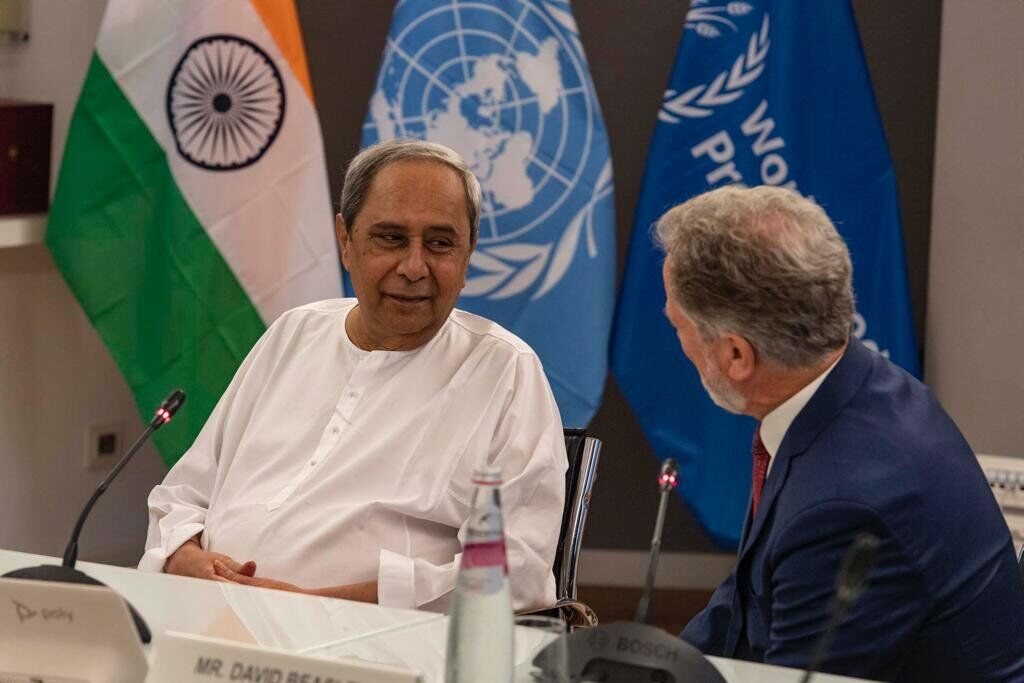A tale of transformation
Odisha, improving from being an import-dependent state in terms of food grains, has scripted an inspiring success story of self-sufficiency; writes Raj Sudha

Today, Odisha is the third largest contributor of rice to India's PDS system. From a state that used to import rice from other states to make its ends meet in the pre-2000 era, Chief Minister Naveen Patnaik's food security model has transformed Odisha into the No.1 ranked state in India in the domain of Food Security. In the recently released "State Ranking Index for National Food Security Act (NFSA)" by the Department of Food and Public Distribution, Government of India, Odisha has emerged as the top ranked State in the entire country.
This, certainly, is not a one-off achievement for the Patnaik government. Ever since the NFSA was implemented in the state in 2015, the government has been working relentlessly to ensure end-to-end computerisation of TPDS operations, update ration card management system (RCMS) centres and host beneficiaries' databases in the public domain.
These steps, along with numerous other initiatives, have enabled Odisha to reach the peak. The State fared well on all the three parameters laid out by the index: 1) NFSA coverage, rightful targeting and implementation of all provisions under the Act; 2) the delivery platform while considering the allocation of food grains, their movement and last-mile delivery to fair price shops; and 3) Nutrition initiatives of the department.
Apart from successfully implementing the National Food Security Programme by providing food grains to 3.24 crore people of Odisha, the Naveen Patnaik Government has also successfully more than doubled the production of food grains in Odisha.
This again has been a result of sustained and comprehensive effort by the government. Since 2013, Odisha Government has been introducing a separate Budget for Agriculture to complement its "robust State Agriculture Policy."
Odisha Government's achievement is a manifestation of the untiring work it has been doing towards strengthening market dynamics for agriculture by delivering outstanding opportunities for business growth in a bid to become an investment hub. The global recognition of Odisha's endeavors bears testimony to the commendable interface the Patnaik government has established between the state's agriculture sector and national and global players.
The achievement of Odisha appears much more magnified when seen in the context of perpetual climatic catastrophes the State has been facing. Amid devastating cyclones and floods, the state machinery has not just stood as a shield for the agriculture sector but has also taken it to great heights.
The United Nations World Food Programme (WFP), headquartered at Rome, invited Naveen Patnaik to share the transformational progress made by Odisha in strengthening livelihood and food security, with a specific focus on marginalised communities and women.
Naveen Patnaik delivered an address in the presence of United Nations WFP executive director David Beasley and the leadership team on how over the last two decades, Odisha has been through a transformational journey in the field of food production, food security, livelihoods, disaster management, among many others.
He shared to this global audience about how Odisha had attained food sufficiency, initiated large-scale growth-related programmes, designed and created climate-resilient livelihoods and nutrition, and focussed on partnerships so that the State consistently kept moving towards attaining the Sustainable Development Goals (SDGs).
David Beasley during the meeting stated how it is exciting to see Odisha's progress towards achieving 'Zero Hunger' and the other UN Sustainable Development Goals. The UN-FWP executive director further praised and appreciated the transformational work of the state government of Odisha in the fields of disaster management, food production, and food security.
He further remarked that the success story of Odisha can provide learning insights for other similarly placed countries. Odisha has become a role model for the world and especially for the developing nations on how to ensure food security for its people.
One of the main aims of the NFSA index ranking was to create an environment of competition, cooperation and learning among states. Today, when the world is looking towards Odisha for inspiration, Indian states, too, have a good deal to learn from it.
Views expressed are personal



